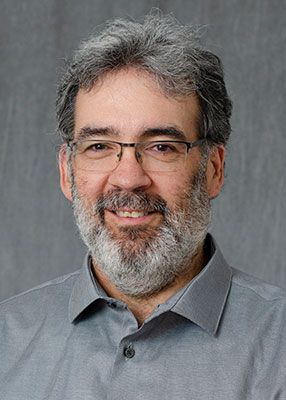
WASHINGTON (May 6, 2014) — According to the World Health Organization, more than 450 million people worldwide, primarily children and pregnant women, suffer illness from soil-transmitted helminths (STH), intestinal parasites that live in humans and other animals. Considerable effort and resources have been, and continue to be, spent on top-down, medical-based programs focused on administering drugs to control STH infections, with little success. John Hawdon, Ph.D., associate professor of microbiology, immunology, and tropical medicine at the George Washington University School of Medicine and Health Sciences, advocates a more sustainable solution for controlling STH infections.
In a review published in the Journal of Parasitology, Hawdon proposes a new emphasis on sustainable, long-term investments in sanitation-based approaches. He promotes the use of improved latrines (the “box”) to provide bottom-up, culturally appropriate, and economically desirable solutions to control STH in endemic areas.
Safe disposal of human waste has been shown to reduce STH prevalence and reinfection rates. While Western-style sanitation systems are not feasible in many regions, individual sanitation systems, such as the “biodigester” being used in areas of rural China, offer a solution. The biodigester is an individual household anaerobic fermentation system used to process organic waste. Waste enters an underground chamber from the toilet and pigpen. Methanogenic bacteria then act on the organic material, producing methane and other gases, referred to as ‘biogas.” The gas is colorless, odorless, burns similarly to liquid propane, and can provide almost 60 percent of a family’s energy needs. The biodigester can also produce nitrogen-rich fertilizer that does not contain infective parasite eggs.
“With more than 39 million disability-adjusted life years lost to STH, control of STH infections is of the upmost importance,” said Hawdon. “The use of biogas technology offers several advantages over current, unsustainable strategies of mass drug administration and vaccination.”
Cost is often an obstacle to improving sanitation in underdeveloped parts of the world. However, the biodigester offers grassroots, community-driven sanitation without the cost of Western-style sanitation infrastructure. Its long-term costs could be much lower than the current disease treatment approach, making it a more cost-effective public health intervention.
The review, titled “Controlling Soil Transmitted Helminths: Time to Think Inside the Box?” is available at the Journal of Parasitology.


